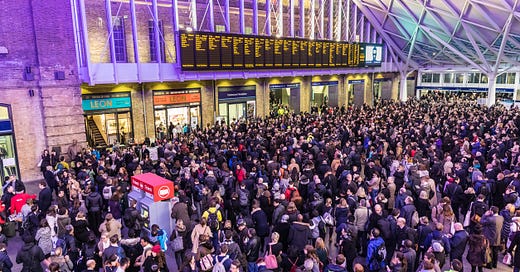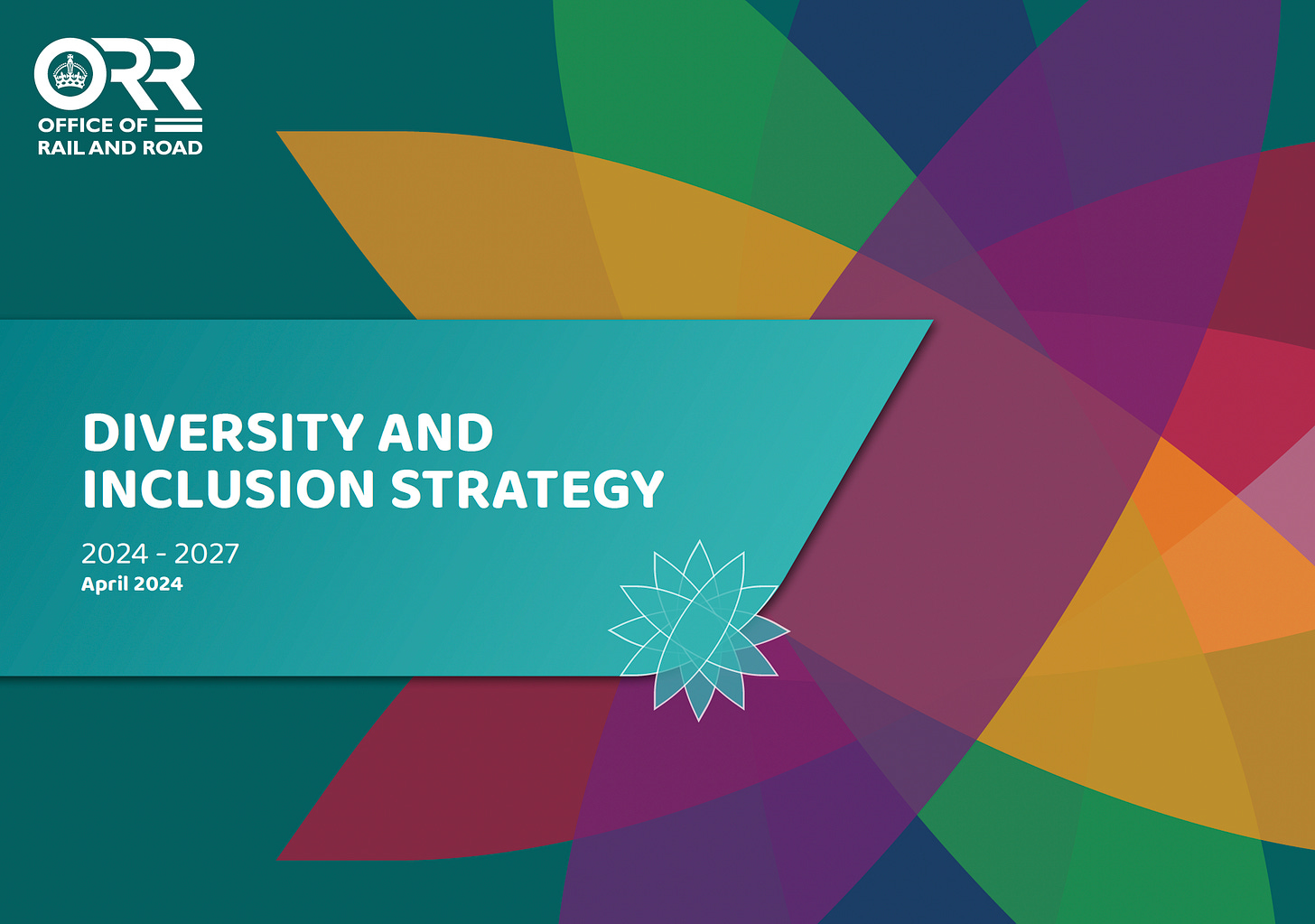Who wants to lose 250,000 customers?
Nobody, but not all organisations find the right way, tone and message to win disabled customers.
You can listen to the main articles in this newsletter (read by myself).
Hello everyone,
Imagine there is a group of 250,000 potential customers for your business. Your business has a choice: Adapt to their needs and win them as customers, or do nothing, ignore and then lose them.
You would think that's an easy decision, but so many transport providers have lost many disabled customers. There are even statistics about that: Disabled people in the UK take 38% fewer journeys than non-disabled people.
It doesn't have to be that way. A press release from LNER highlights their record number of requests for assistance when travelling by train. It's a compelling example of why businesses should focus on providing excellent service to disabled people.
Record number of assistance requests
250,000 people requested assistance when travelling with LNER between April 2023 and the end of March 2024. LNER's record number of assistance requests demonstrates why accessibility and a good strategy when it comes to customer experience for disabled people are important. It is a growing customer group.
In its press release, LNER emphasises that it provides assistance to anyone who requires it, whether they book the service in advance or upon arrival at the station. This is such an important message.
Some organisations are obsessed with pre-booking numbers for assistance requests (not just in railway, hello airports!). It's a strange approach to think the customer must adapt to the company's processes and not vice versa. You hardly expect that from non-disabled people.
Happy to welcome disabled customers
Something else stands out: the non-dramatic, normalising tone when speaking about assistance. LNER is proud to deliver this service, which alone is a good sign. They welcome disabled customers and are happy more are coming. That's half the communications job done.
They don't make a drama out of this press release and don't over-celebrate themselves. Often, companies write press releases about accessibility initiatives that sound like big heroism just for the fact that they welcome disabled customers.
It's a fine line between informing customers about the service a company can offer for this customer group (that's important, of course) and praising themselves so much that the tone becomes alienating, not welcoming, for disabled customers.
LNER hit the right tone by quoting their accessibility manager: "We are delighted to see more and more people choosing to travel with LNER, and we want everyone to enjoy the best possible experience. We believe that parity of information and parity of service for customers is so important, and we’re proud that they trust our service." Bam! That's what I want to read as a disabled customer.
The company is delighted to see so many disabled customers. Correct, why wouldn't they? Everyone pays for their ticket. The 250,000 disabled people wouldn’t get replaced by non-disabled people if LNER wouldn’t welcome them.
In conclusion, businesses can create a more welcoming and inclusive environment by recognising their customers' diverse needs and implementing services that meet them. The right tone and message are key with press releases like that.
Some interesting links
The Spanish National High Court fined Vueling Airlines for failing to make its website accessible. Vueling has the same holding company as British Airways.
The UK is waiting for new funding to make stations accessible while the House of Commons Public Accounts Committee hearing discussed the UK rail reform. They got answers on accessibility but not the ones anyone who thinks accessibility is an important matter had hoped for.
Dublin will soon have more accessible trains with level boarding.
Something to read
The British rail regulator ORR has published its progress on its Diversity and Inclusion Strategy 2024 to 2027. Only 7% of its staff identify as disabled (while the civil service has 16% disabled employees).
Something to watch
Just in case you're not one of the 2.1 million people who have watched this video on Twitter, aka X, yet, it's only a minute long, but it shows so many issues the railway sector needs to tackle if it wants to have a future. The solutions are there: level boarding, managing and empowering frontline staff, establishing a "can do" and problem-solving culture for the benefit of all customers, and so on.
[Video description: The guard puts the ramp on the train door where the wheelchair space is. A station staff member is present, too. The guard needs a while to position the ramp correctly; even so, it is obvious that it will be blocked by a lamp post. He gets distracted by a non-disabled man who asks him something, and the guard makes sure he boards the train. The wheelchair user is still waiting. He then removed the ramp after he had noticed it wouldn’t work. The train leaves without the wheelchair user.]
Some final words
Don’t be neutral; the “neutral” medical position on so many things has justified our exclusion and incarceration, and the “neutral” social view makes us into unfortunate charity cases rather than fully human beings. (Ashley Shew)
The Accessible Link is a reader-supported publication. So, if you like what you’re reading, consider to
As a paid subscriber you will receive an additional edition every two weeks with best-practice tips on improving accessibility in your organisation.
Who is writing this newsletter?
I’m Christiane Link, and I improve the customer experience in aviation, transport, and travel. I worked as a journalist for over two decades and travelled extensively for business and leisure. I’m a wheelchair user.
Work with me
Whether you're a Customer service director, a Head of Customer Experience, a corporate Accessibility manager, a DEI leader, a transport planner, or a disabled employee resource group member, I can help you to make your organisation more inclusive. You can book me for speaking engagements or hire me as a consultant for your accessibility or DEI strategy, communications advice and other related matters. I have worked for airlines, airports, train operators, public transport providers, and companies in other sectors.
If you want to read more from me, follow me on LinkedIn, Twitter, Bluesky or Mastodon. You can also reply to this email if you want to contact me.
.





